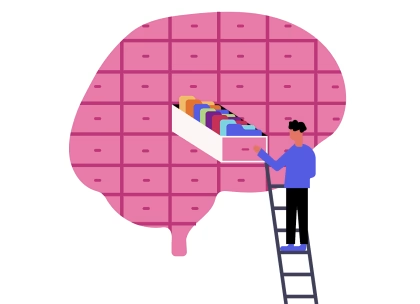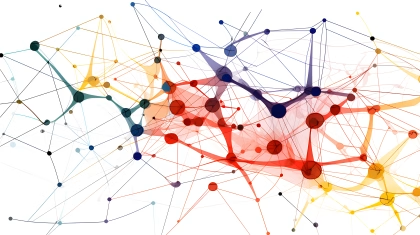Discover how music influences the brain, from boosting memory and regulating emotions to enhancing cognitive function and physical health. Learn about the brain regions involved in processing music, like the auditory cortex, motor cortex, and limbic system, and explore how music therapy benefits mental and emotional well-being.
Table of Contents
Music.
The one drug no one ever told you to avoid. It’s everywhere, sneaking into your soul through supermarket speakers and car radios, leaving you bobbing your head to tunes you swore you’d never like, but yet they activate something in your brain. Music triggers emotions, and memories as well as more immediate feelings such as elation, happiness, melancholy and every emotion in between.
Whether you’re slumping through a breakup listening to that song you both loved, or dancing like there is no tomorrow to a tune you’d never admit to liking the morning after, music doesn’t just slip into your life – it sets up camp, lights a fire, and makes you feel things you didn’t even know were there, but why is that?
In this post, we’ll explore the science behind music’s influence on the brain and discuss its potential for improving cognitive function, emotional well-being, and physical health.
The Brain on Music: A Complex Symphony of Activity
Listening to music is a full-brain experience. Neuroscientific studies show that music triggers activity across various brain regions. The auditory cortex processes sound, but music also activates areas responsible for movement, emotions, and memory, making it a holistic experience for the brain. Studies using fMRI and PET scans have shown that music listening leads to increased activity across the brain’s temporal, frontal, and parietal regions, illustrating the complexity of how the brain processes music (Thaut et al., 2001).

Rhythm and Movement: Activating the Motor Cortex
One of the reasons people often move to music is because rhythm stimulates the motor cortex. Research shows that rhythmic sound can enhance motor coordination, which is why it’s being used to help people with movement disorders like Parkinson’s disease (Thaut et al., 2001). Even for people without motor issues, music often leads to unconscious movements, like toe-tapping or head-nodding, as the brain naturally responds to rhythmic patterns.
Music and Emotion: The Role of the Limbic System
Music evokes powerful emotions by engaging the limbic system, particularly the amygdala, which is involved in processing emotional reactions. The release of dopamine, a neurotransmitter associated with pleasure and reward, occurs when we listen to music we enjoy (Salimpoor et al., 2011). This neurochemical response explains why certain songs can make us feel euphoric or deeply moved.
Music and Memory: Tapping Into the Past
Music’s connection to memory is one of its most fascinating effects. Studies have found that music can trigger vivid recollections, sometimes even bringing back long-forgotten memories. This is particularly evident in patients with Alzheimer’s disease, where familiar music can access memories that seem otherwise inaccessible (Cuddy et al., 2012).
Music as a Tool for Memorization
Music’s structured patterns make it an excellent mnemonic device. Educational research has shown that pairing information with melody improves recall, especially in young children. For instance, studies have demonstrated that learning through song improves verbal memory retention (Ho et al., 2003). The repetitive structure of songs helps the brain encode and store information more effectively than spoken words alone.

Music and Emotional Regulation: A Natural Mood Enhancer
Music has a unique ability to regulate emotions, and this is why many people turn to it in times of stress or sadness. Depending on the genre, music can either amp you up (think of fast-paced songs before a workout) or calm you down (soothing tracks for relaxation).
The Chemistry of Music: Dopamine and Serotonin
Music influences neurotransmitter levels in the brain. Dopamine, often called the “feel-good” chemical, is released when we hear music we love, contributing to feelings of happiness and contentment (Salimpoor et al., 2011). Additionally, calming music has been shown to increase serotonin levels, which helps regulate mood and anxiety (Chanda & Levitin, 2013).
Music Therapy: Improving Mental Health
Recognizing its emotional impact, music therapy has become an effective tool for managing stress, anxiety, and even depression. Research has demonstrated that music therapy can reduce symptoms of anxiety, improve mood, and foster emotional expression in both children and adults (Gold et al., 2009).
Cognitive Benefits of Music: Sharpening the Mind
Music isn’t just good for emotional well-being; it also has cognitive benefits. Learning to play an instrument or even regularly listening to music can boost brain plasticity-the brain’s ability to form new connections and adapt to new information (Herholz & Zatorre, 2012).
Music and Academic Performance
There is evidence suggesting that music can enhance cognitive functions like spatial reasoning, attention, and even mathematical abilities. While the so-called “Mozart Effect”-the idea that listening to classical music boosts intelligence-has been largely debunked as a myth (Pietschnig et al., 2010), there is still significant support for the cognitive benefits of active musical engagement, particularly in children (Hyde et al., 2009).
Music and Physical Health: Healing Through Harmony
Beyond its cognitive and emotional benefits, music can also influence physical health. Listening to music has been shown to lower blood pressure, reduce cortisol levels (the body’s primary stress hormone), and even improve immune function (Chanda & Levitin, 2013). Music’s ability to promote relaxation has been used in various clinical settings, from pre-surgery anxiety reduction to pain management during recovery.

Music for Pain Relief
Research has shown that listening to music can alleviate pain in both chronic and acute settings. This is due in part to music’s ability to distract the brain from focusing on pain, as well as its role in triggering the release of endorphins-natural painkillers produced by the body (Cepeda et al., 2006). Music therapy is increasingly being incorporated into pain management strategies for conditions such as fibromyalgia and cancer.
The Soundtrack to a Healthier Brain
Music’s impact on the brain is profound, influencing everything from emotions and memory to cognitive function and physical health. Whether it’s a familiar tune triggering nostalgia or a rhythmic beat aiding in motor coordination, music engages the brain in ways that few other stimuli can. As research continues to uncover more about the brain’s response to music, its potential therapeutic uses will likely expand, offering new pathways for improving mental, emotional, and physical well-being.
So the next time you listen to your favorite song, know that you’re not just enjoying a melody-you’re giving your brain a workout and potentially boosting your health in ways you might not have imagined.
References
- Thaut, M. H., et al. (2001). Rhythmic auditory stimulation improves gait more than NDT/Bobath training in near-ambulatory patients early poststroke: A single-blind, randomized trial. Stroke.
- Salimpoor, V. N., et al. (2011). Anatomically distinct dopamine release during anticipation and experience of peak emotion to music. Nature Neuroscience.
- Cuddy, L. L., et al. (2012). Music, memory, and Alzheimer’s disease: Is music recognition spared in dementia, and how can it be assessed? Brain and Cognition.
- Särkämö, T., et al. (2008). Music listening enhances cognitive recovery and mood after middle cerebral artery stroke. Brain.
- Ho, Y. C., et al. (2003). Music training improves verbal but not visual memory: Cross-sectional and longitudinal explorations in children. Neuropsychology.
- Juslin, P. N., & Västfjäll, D. (2008). Emotional responses to music: The need to consider underlying mechanisms. Behavioral and Brain Sciences.
- Gold, C., et al. (2009). Music therapy for depression. Cochrane Database of Systematic Reviews.
- Herholz, S. C., & Zatorre, R. J. (2012). Musical training as a framework for brain plasticity: Behavior, function, and structure. Neuron.
- Pietschnig, J., et al. (2010). Mozart effect–Shmozart effect: A meta-analysis. Intelligence.
- Hyde, K. L., et al. (2009). Musical training shapes structural brain development. Journal of Neuroscience.
- Chanda, M. L., & Levitin, D. J. (2013). The neurochemistry of music. Trends in Cognitive Sciences.
- Cepeda, M. S., et al. (2006). Music for pain relief. Cochrane Database of Systematic Reviews.
- Bradt, J., et al. (2010). Music interventions for mechanically ventilated patients. Cochrane Database of Systematic Reviews.
Free 22-page Voice Analysis Guide
For Beginners and Intermediates
- Get a thorough understanding of the essentials
- Valuable Voice Analysis research insight
- Learn how to take your research to the next level











